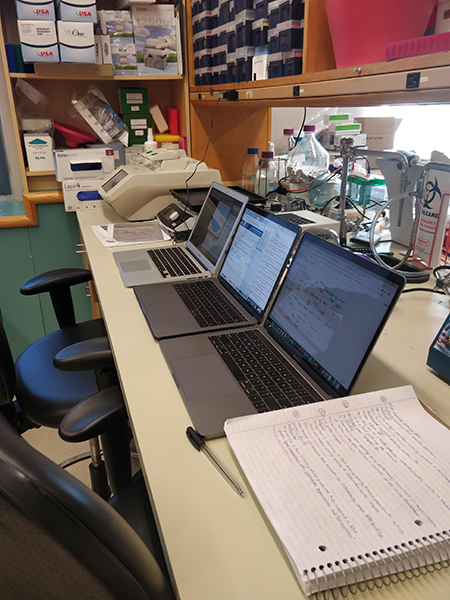I Heart Regeneration
By Helene Mantineo
 Regeneration is an important, cutting edge branch of science in which the zebrafish is king. Zebrafish are capable of regenerating many parts of their bodies if injured, including their fins, hearts and parts of their nervous system. Unfortunately, humans do not have this regenerative capacity and instead form scars when our organs are injured. Scarred heart tissue that forms as a result of heart attacks ends up weakening the heart muscle, leaving a person more vulnerable to future heart complications. By studying the regeneration of zebrafish hearts and learning the underlying mechanisms, we can figure out how the process can eventually be induced in humans.
Regeneration is an important, cutting edge branch of science in which the zebrafish is king. Zebrafish are capable of regenerating many parts of their bodies if injured, including their fins, hearts and parts of their nervous system. Unfortunately, humans do not have this regenerative capacity and instead form scars when our organs are injured. Scarred heart tissue that forms as a result of heart attacks ends up weakening the heart muscle, leaving a person more vulnerable to future heart complications. By studying the regeneration of zebrafish hearts and learning the underlying mechanisms, we can figure out how the process can eventually be induced in humans.
Hello, my name is Helene Mantineo. I am a rising junior at Wheaton College in Massachusetts studying biochemistry on the pre-medical track. During the school year, I do research in a lab that studies biology at the cellular and genetic levels. Recently, I have taken a particular interest in developmental pathways and their impacts on different cells, tissues, and eventually the organism itself.
In the King Lab this summer, I am looking at the effects that certain non-coding genes have on regeneration. Only about 2% of the genome actually codes for functional proteins. Until recently, it was thought that the other 98% was simply junk DNA and served no function. However, it has been found that these non-coding genes play many roles, including regulating other genes. By looking at a certain type of data known as RNA sequence data, we can determine which of these non-coding genes are present at different stages of heart regeneration using different computer software tools. We also use tools in order to map these non-coding genes to further test the validity of the sequences.
As a student with little prior experience in computer science and bioinformatics, I did not know what to expect of my project. At Wheaton, I studied zebrafish heart regeneration in my research lab, so I felt as if I had some knowledge of the topic. Thanks to the guidance of my research mentor, Benjamin King, PhD, and the other undergraduate and graduate students in the lab, I am discovering new skills to help me answer the broader question of my project: which genes could function as pro-regenerative factors in zebrafish regeneration?
Through this research experience, I have been exposed to a new branch of biology and explored new interests. Although I am unsure of my exact career path, this experience has helped me recognize that there are more aspects of biology that I would like to investigate. Fellow members of the research cohort have empowered me to continue to seek new opportunities that involve a multifaceted approach to research. The One Health and the Environment approach to this Research Experience for Undergraduates has helped me to better understand that there are many aspects of scientific inquiry and we should always be asking more probing questions.
This blog post was authored by a student participating in the Research Experience for Undergraduates – Accelerating New Environmental Workskills program, which is led by faculty in the Initiative for One Health and the Environmental and funded by the National Science Foundation. Information in this post does not represent the University of Maine or its faculty.
